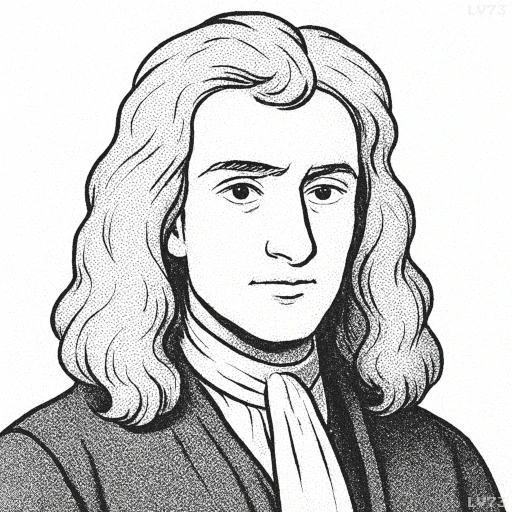“Infinites, when considered absolutely without any restriction or limitation, are neither equal nor unequal, nor have any certain proportion one to another, and therefore, the principle that all infinites are equal is a precarious one.”

- January 4, 1643 – March 31, 1727
- Born in England (UK)
- Natural philosopher, mathematician, physicist, astronomer, theologian
table of contents
Quote
“Infinites, when considered absolutely without any restriction or limitation, are neither equal nor unequal, nor have any certain proportion one to another, and therefore, the principle that all infinites are equal is a precarious one.”
Explanation
In this quote, Isaac Newton is discussing the concept of infinity, particularly in the context of mathematics and the early formulation of calculus. Newton asserts that infinite quantities—when considered in their purest, unbounded form—are not comparable in the same way as finite numbers. He suggests that without any restrictions or limitations, infinites do not have a clear or definable relationship to each other; they are neither equal nor unequal, and cannot be measured in proportional terms. Newton is critical of the idea that all infinities are inherently equal, arguing that such a principle is unreliable or precarious, as it overlooks the complexity and nuance of dealing with infinite quantities.
This reflection comes from Newton’s early work in mathematics, where he and Leibniz developed the foundation for calculus and the study of limits, rates of change, and infinite sums. The concept of infinity was crucial in their work, but it was also a point of contention. At the time, the mathematical handling of infinites was not as fully developed, and the notion of dealing with infinite quantities in rigorous ways was still in its infancy. Newton’s caution about assuming that all infinites are equal reflects his deeper understanding of the complexities involved in using infinites in scientific and mathematical reasoning.
In modern mathematics, the concept of infinity has been more formally developed, especially through the field of set theory and the work of Georg Cantor in the 19th century. Today, we understand that different types of infinity exist, and some are larger or smaller than others, a concept that was not available in Newton’s time. Calculus and other areas of mathematics have also provided more robust methods for working with infinites, such as the concept of limits, where infinites are approached in a controlled way to yield meaningful results. Newton’s early skepticism about the equality of infinites reflects the ongoing development of mathematical rigor in dealing with the infinite, and his work laid the groundwork for more precise and accurate ways of handling such concepts.
Would you like to share your impressions or related stories about this quote in the comments section?



